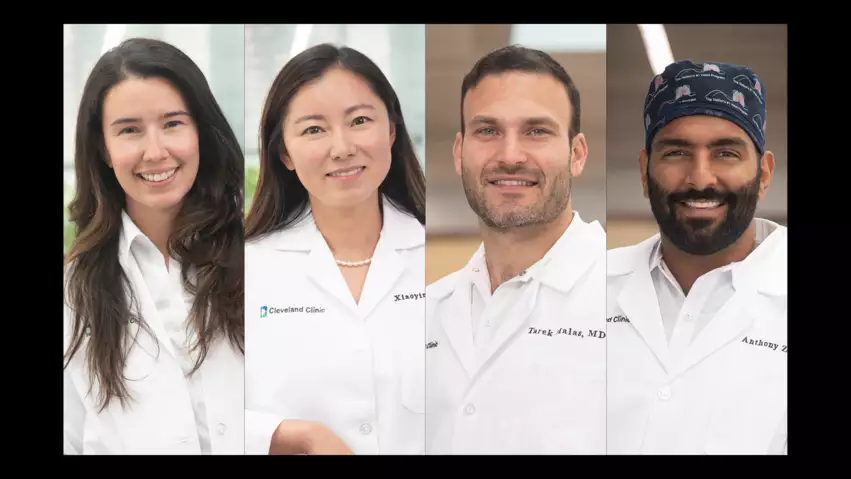Historic growth: Cleveland Clinic hires 4 new cardiothoracic surgeons to keep up with rising demand
Cleveland Clinic, often cited as one of the preeminent U.S. hospitals for cardiology and heart surgery, has responded to rising patient volumes and an evolving healthcare landscape by hiring four new cardiothoracic surgeons. This represents the first time in the hospital’s long history its department of thoracic and cardiovascular surgery has added four new surgeons in a single 12-month period.
“We have been busier than ever before and are performing more complex operations,” A. Marc Gillinov, MD, thoracic and cardiovascular surgery chair and surgical director of Cleveland Clinic’s center for atrial fibrillation (AFib), said in a statement. “We therefore needed to grow and expand our expertise, and we have very intentionally brought in surgeons who can do all types of cardiothoracic operations while also bringing specialized skill sets to specifically address targeted areas of patient need.”
Gillinov noted that each surgeon spent at least one year training with Cleveland Clinic, making them comfortable with both the hospital’s culture and its high expectations. In addition, he said, the expertise these new hires bring to the department helps ensure all patients can receive the care the high-quality care they deserve without delays.
“We increasingly face complex problems that require our surgeons to work together, which demands a large enough cadre of surgeons to take care of the patients,” Gillinov said.
Meet Cleveland Clinic’s newest cardiothoracic surgeons:
- Donna Kimmaliardjuk, MD, specializes in off-pump CABG; multi-arterial and total arterial bypass grafting, and single-vessel small thoracotomy bypass grafting.
“The opportunity to address the historical underrepresentation of women in cardiovascular research and the underdiagnosis and undertreatment of heart disease in women,” she said. “As a female cardiac surgeon, I feel a responsibility to help improve outcomes for women undergoing cardiac surgery. We also know that having a diverse and representative group of health professionals improves patients’ access to care, perceptions of care, and care outcomes. As an Inuit woman, I think it’s important for women wanting to pursue medicine to see themselves reflected in these positions and know that it’s possible to be a female cardiac surgeon.”
- Xiaoying Lou, MD, specializes in aortic aneurysms, dissections and stenosis, connective tissue disorders, and heart valve disease.
“I’m interested in open and endovascular aortic surgery as well as valvular surgery outcomes, at both an institutional database level and a national trial level,” she said. “I also plan to help integrate advanced imaging modalities, such as 4D MRI, into our growing database of aortic tissue histology and biomechanics to better understand the risk of aortic catastrophes and optimize surgical outcomes in this complicated patient population.”
- Tarek Malas, MD, specializes in minimally invasive surgery, robotic surgery, percutaneous structural interventions,complex valvular disease, CABG, and AFib surgery.
“One of the most exciting developments in cardiac surgery is the collaboration between cardiac surgery and cardiology to perform procedures using a minimally invasive or hybrid approach,” he said. “This can significantly improve recovery times and help patients return to their daily lives more quickly with the same overall excellent outcomes that are achievable with a more invasive open-heart surgery.”
- Anthony Zaki, MD, specializes in heart transplants, ventricular assist devices, arterial coronary revascularization, pericardiectomy, and aortic surgery.
“Modern cardiac surgery is less than a century old, yet it’s constantly evolving and innovating, especially in the past decade,” he said. “It is an exhilarating time to practice heart surgery at Cleveland Clinic and to be able to offer patients and their families the full breadth of cardiovascular care in a less invasive and more reliable manner.”
Click here for additional information from Cleveland Clinic’s Consult QD website.


